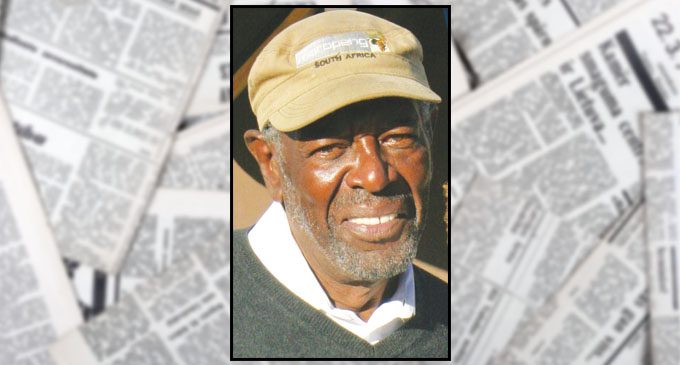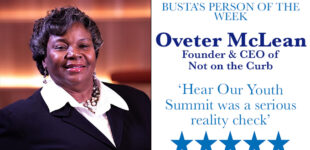Commentary: Ending generational poverty takes a new approach

Jerry Anderson
Guest Columnist
Over the years (Happy Hill Garden-’51) there have been countless attempts to end poverty among minorities here in Winston-Salem.
And even nationwide! While strides have been made in education, employment, housing, social justice and a number of other areas in our society … generational poverty abounds in this city, rich in history, technology, education, the Arts.
The levels of generational poverty are unacceptable. The resulting litany of low expectations, low performance, low this or that, is truly a paradigm that CAN change.
A growing number of people realize the need to envision, construct and implement a new approach to address this issue. This new approach must include an understanding amongst this impoverished people. The process of ushering in this concept is an educational piece developed by the foremost authority on poverty in the U.S., Dr Ruby K. Payne of … aha!… Process Inc., who seamlessly demonstrates that the poor must first understand poverty before a system can be put in place to eradicate it. That is the “Vision.”
One of the many challenges faced in this process is created by the environment in which these children, fathers and mothers live. Neighborhoods where success models are those of the people that are the most visible but are often the ones who don’t represent the shift necessary to propel the youth into an orbit that will pull others along with them.
Car, tennis shoes and items of clothing or lack thereof form the reality that resides. That ENVIRONMENT will not support CHANGE! In order to effectively develop leaders that will help dismantle this chronic, systemic malady of generational poverty, a refuge must be created wherein the necessary skills can be honed free from the distractions of the toxic environments that we seek to positively impact. This is the “Construct.”
Development of a “collaborative body” will augment this residency plan from which a pilot program will emerge. A program that is fully funded through private, non-governmental participation that rewards participants that complete the training with business ownership and all of the attendant back room services that businesses need to ensure profitability and longevity.
Just as we invest in corporations, we should invest in poverty and see the contributions made by tax paying, engaged fathers, who begin to inspire their children to greater heights as a result of the Pride one feels when success takes hold. There are many service related careers that don’t require a college degree and have relatively short start up timelines. Imagine the possibilities if the business community could view this virgin territory of prospective ” franchisees ” as not only vehicles to power economic development in local communities but as investment opportunities that would positively impact THEIR bottom line. Lastly, there could not be a conversation about eradicating poverty without a clear understanding of “Toxic Charity,” that is – money spent to positively impact some social ill that instead becomes part of the problem. Valuable resources are committed to programs that have time-tested measurables that speak to the lack of impact to scale delivered by solutions that fail to recognize the insidious characteristics of GENERATIONAL POVERTY. Understanding how to re-integrate the men that live in these neighborhoods into the fabric of those communities is imperative and doable.
We move at warp speed to improve our lives through intoxicants that are short lived. Children yet to be born will be challenged by the lack of resolve of the prevailing paradigm to speak boldly and with the wisdom of the past, to know that all who said that the earth was flat changed their minds when they changed their prospective.
We are not bound by information that served us yesterday when it is clear that information is flawed against the backdrop of an ever-changing landscape.
Winston Salem, the city of Arts & Innovation, can truly live out that vision now by weaving this collaborative web of inclusion that will strengthen OUR community and ultimately serve as THE model that drives the winds of change.
Jerry Anderson owns Village Produce and Country Store in Ogburn Station with his wife, Paula McCoy.















